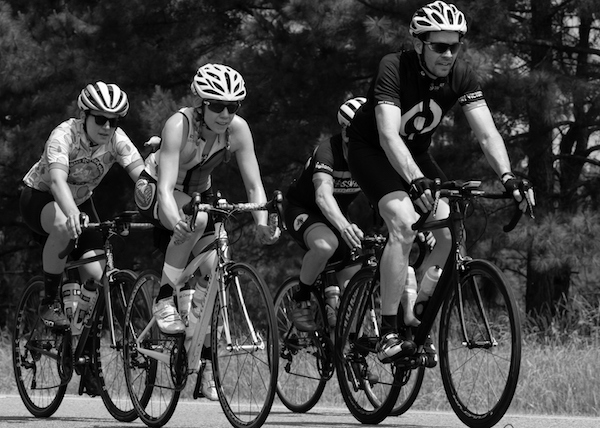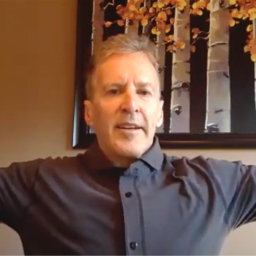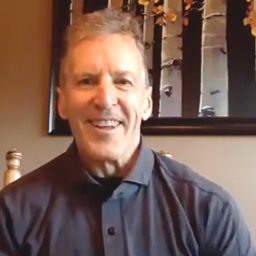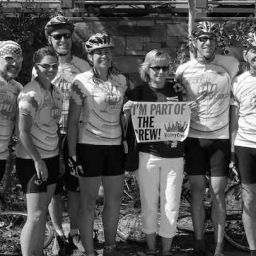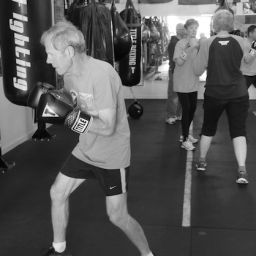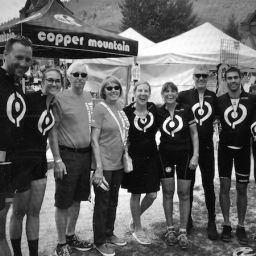Photos by Kim Turner Photography and Rick Eggleston
What has your life been like since your diagnosis?
My wife and I sat opposite a large mahogany desk, watching as Dr. Puhalovich viewed an MRI of my brain. He said, “Mmm hmmm, yep. Well, you don’t have a brain tumor because if you did, you’d be dead by now. But you do have Parkinson’s Disease. You’ve got ten good years – go and enjoy your life.”
That’s how my Parkinson’s journey officially started. It was March 19, 2015, and I had spent the fifteen months prior with symptoms that included painful toe-curling while running, a left arm that didn’t move when I walked and a mild twitch in my left pointer finger. Now we had an answer that finally came after an exhausting program of blood tests, Lyme disease protocol, a CT scan and an MRI, alternative medicine, sonograms of my legs and a traumatic brain injury protocol. There was no getting around it. It was Parkinson’s.
People react to the news of a Parkinson’s diagnosis in a wide variety of ways. My “five stages of grief” went from denial to acceptance in a matter of a week or two at best.
This is perhaps because I didn’t have a lot of time for anything else. Two days after I was diagnosed, I boarded a plane to China for a business trip, and I had to have my head in the game. I also was (and still am) the sole provider for a family of four. I didn’t have time for anger or to wallow in self-pity.
I announced that I was going to fight this thing, which usually resulted in the less than optimistic “You can’t beat this” statements. But, it wouldn’t be the first time that I was out-gunned. And yes, perhaps I moved too quickly to acceptance, not taking the requisite time to experience the pain and loneliness, but I suppose it’s the way I’m wired. When met with a problem, I figure out how to solve it.
I’ve been in situations before where I was not supposed to excel, overcome or succeed, but I did. Parkinson’s wasn’t going to be different. You see, I carry this sometimes heavy burden of hope, faith and unshakable optimism in all facets of my life. As crazy as it sounds, I still believe, even after four and a half years living with Parkinson’s, that I’ll be OK. That this thing won’t get the best of me. Is it denial or unbridled optimism? I choose to believe it’s the latter.
How do you live well each day?
Fortunately, about five years before my diagnosis, I got back on my road bike after a twenty-year hiatus. I began running too and lost around eighty pounds. So, from that standpoint, I was in a good position to accept the Parkinson’s diagnosis since I was already active and knew that staying active was going to be a key to living well. I think it’s much harder to become active in the face of a Parkinson’s diagnosis if you lead a sedentary lifestyle. It’s not impossible, but I suspect it’s difficult. Plus, I was 44 years old when I was diagnosed, so I felt good knowing I had youth on my side.
Rigorous exercise is the cornerstone of my treatment. I run, do CrossFit, lift weights, row and cycle, with road cycling being my preferred outlet. In November 2016, I began a regimen of carbidopa/levodopa. I had added a left arm resting tremor, a periodic left leg tremor and painful dystonia in my left hand, fingers and left toes to my list of symptoms. These all impacted my daily life even more, and I needed to mitigate them as best I could.
Fortunately, even still today, I rarely take the doctor-prescribed “two pills, three times a day” due to bearable symptoms while I’m at work. I guess it’s because I do my best to ignore my symptoms, and I do workarounds like typing with one hand while my other hand trembles and curls up. I still take my medicine a half-hour before riding, rowing, CrossFit or running though. (As an aside, I recently began taking part in a Rasagiline trial at the University of Florida, so we’ll see how that goes).
I’ve also made it a point to find athletes online who are living with Parkinson’s and have similar struggles. To commemorate National Parkinson’s Awareness Day, I noticed a flurry of activity on social media where Parkinson’s athletes were taking up physical challenges and documenting their progress. Whether it was completing a certain number of burpees in a day or completing daily “Murph’s,” those living well with Parkinson’s were being vocal about how they were combating the disorder with vigorous exercise.
Naturally, I felt compelled to join in. I publicly challenged myself on social media to ride in the annual Athens to Savannah (Georgia) Double Century. It was a two-day, 230-mile road bike event on May 11-12, 2018. With less than six weeks to prepare, I began training. I had ridden several metrics and centuries since being symptomatic, but I had never in my life ridden a “Double Century.” On the ride, I quickly found the three fastest riders, latched on and did my part taking pulls to bring our group across the line first on both days. None of the cyclists in my group had any idea I was popping carbidopa/levodopa every three hours, and to this day only one in that group knows I have Parkinson’s.
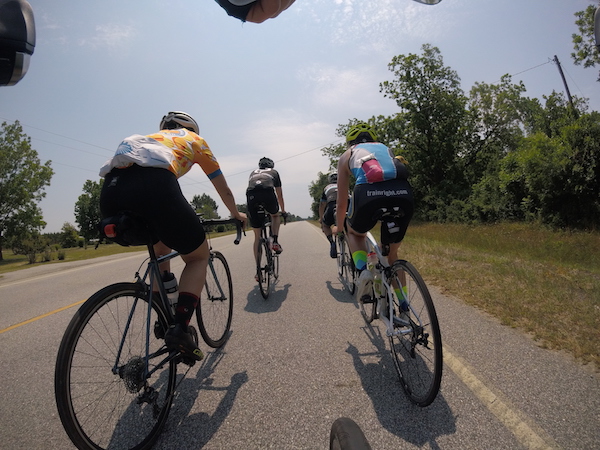
A day before we hit the road, I took to Facebook to remind my friends about my commitment to commemorate National Parkinson’s Awareness Day with this ride. As I typed my hashtags to give credit to the Davis Phinney Foundation and the Michael J. Fox Foundation for Parkinson’s Research, Facebook prompted me to add a donation link through a new widget on their site. Within ten seconds, I created a link and a donate button to the Davis Phinney Foundation. It was so easy! I’m just sad that this didn’t occur to me sooner because I only had my donation bar active for a short period of time before embarking on the ride.
(Note for people interested in fundraising: You can raise money in a wide variety of ways for the Davis Phinney Foundation. My company, Hybrid Audio Technologies, in conjunction with SQOLOGY, is sponsoring a series of car stereo “sound-off” competitions this year, and we have added a donation tab. We have already raised well over $1,000.00! So, it doesn’t need to be an athletic event – it can be an organized event of nearly any kind!) See the Foundation’s fundraising resources for more info on creative ways to raise money.
As unbelievable as it may sound, I’m healthier, faster and have more endurance today than I did five years ago. I am reminded by my friend, Jimmy Choi who once had someone say to him, “Imagine how much faster you’d do a marathon if you didn’t have Parkinson’s.” He replied, “If I didn’t have Parkinson’s, I wouldn’t be running marathons.” That’s true for me as well. If I hadn’t been diagnosed with Parkinson’s, I suspect I’d just be your average cycling enthusiast taking part in an occasional group ride, not someone consistently logging more than 200 miles a week on the bike.
On every organized (SAG’d) ride since being diagnosed three and a half years ago, I wear my Phinney jersey. Sometimes it sparks conversation, like when a fellow rider asks, “Do you know someone with Parkinson’s?” Imagine the surprised look when they learn it’s me! I wear my colors with pride! Thanks to the Davis Phinney Foundation for my new black threads!
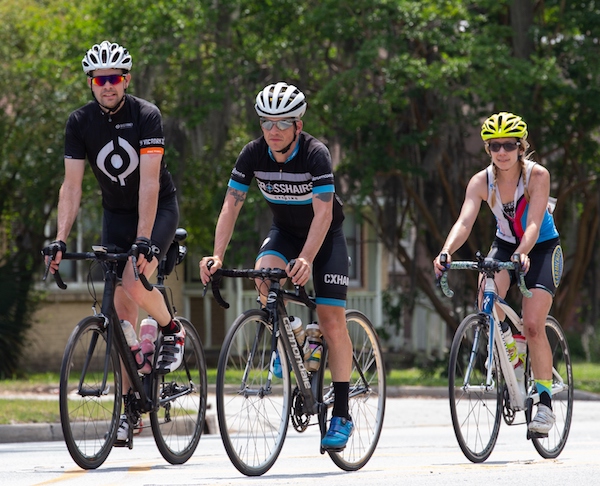
What do you wish you would have known when you were diagnosed that you know now about living with Parkinson’s?
I believe my biggest takeaway from living well with Parkinson’s is to learn to balance rest with physical exercise. When I was first diagnosed, all I read in my online literature search was the efficacy of daily, rigorous exercise, but there was little if any mention of balancing proper rest with said exercise. I have the propensity to over-train; I don’t need to be told to exercise. I figure if it’s good for you, then I might as well do a lot of it.
Exercising seven days a week was not uncommon in the early stages of diagnosis, and even today it’s a struggle to not fall into the mode of “twofers” and daily exercise. I’d frequently train fourteen or fifteen consecutive days and then wonder why everything hurt and I had no energy!
For a long time, I grossly underestimated the healing time my 47-year-old-body with Parkinson’s required and, I paid the price. Now my family ribs me about my scheduled, almost military-like sleep schedule. My head hits the pillow at 10:00 pm, I’m asleep by 10:30 pm (usually much sooner) and I wake up, mostly refreshed, at 7:00 am; a theoretical eight and a half hours of sleep! I find that rest is just as important as physical exertion, and they need to be balanced.
Another strategy I’ve employed to make it easier to discuss and compartmentalize my condition is to make it tangible and name it. You might think it’s crazy, but I call my Parkinson’s “James” after James Parkinson. It’s not uncommon for me to tell my wife that I had a “bad James day” or “I really pissed James off doing deadlifts today” or that “James was angry with me after that ride.” It gives me a tangible enemy to focus on. Weird, I know.
Scott Buwalda’s Philosophy
What do you wish everyone living with Parkinson’s knew about living well?
There’s no magic elixir, formula, plan or strategy to make Parkinson’s more manageable. This is what frustrated me the most. I wanted the ‘inside track’ on how to beat this thing, and it simply doesn’t exist. No exhaustive google search uncovered the fool-proof plan to follow. In fact, what it did uncover was a lot of conflicting information. There’s not even a consensus on what diet a person with Parkinson’s should follow. (I gave up on trying to find the perfect diet long ago and have reverted back to merely balancing what goes in and what goes out.)
Coming to terms with the reality that there’s no ‘fool-proof plan’ has been the hardest part of Parkinson’s for me. I’m a planner and a doer. I see a problem and devise a solution, many times relying on those that came before me to structure said solution.
Yes, there are some common themes that all of us living with Parkinson’s would probably do well to address: eating a healthy and balanced diet of fats, proteins and carbohydrates; participating in rigorous exercise; resting a lot; having faith and nurturing healthy interpersonal relationships. But that’s a mere skeleton, an outline of a novel that only you can write. In my four and a half years symptomatic, I’ve been working on my own story, and the advice I can give to newcomers is to have patience, dabble a little, prepare for failures, but relish the triumphs! Every. Victory. Counts.
Share Your Victory
Each month, we spotlight someone from our Parkinson’s community who embodies living well today – what we call Moments of Victory®.
Your story, like Scott’s, could be featured on our blog and Facebook page so others can learn from your experiences and victories.


